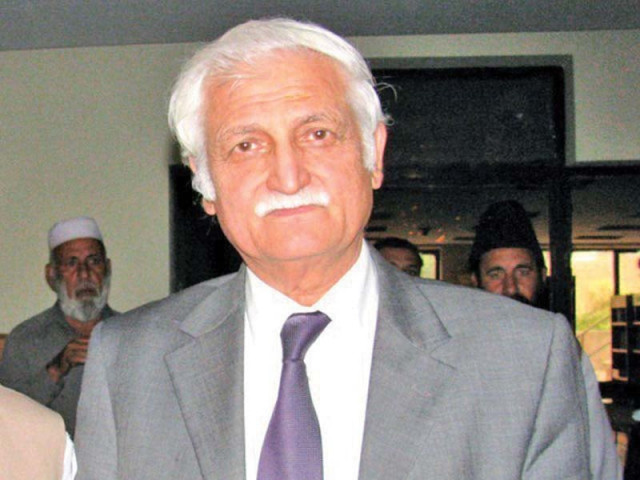Anti-terror laws try only ordinary criminals
Research report finds that there is lack of clarity on juveniles being tried under the act

Research report finds that there is lack of clarity on juveniles being tried under the act. PHOTO: FILE
This was stated by speakers during the launch of the report ‘Trial and Terror – The Overreach of Pakistan’s Anti Terrorism Act’ by Justice Project Pakistan in Islamabad on Tuesday.
“Anti-terrorism laws almost do not exist for terrorists, only ordinary criminals, in a broken criminal justice system,” said Pakistan Peoples Party Senator Farhatullah Babar, adding that the death penalty seemed to have “not deterred crime at all.”
The report, which documents the fundamental weaknesses in the country’s primary anti-terrorism legislation, found that despite establishing a parallel set of procedures for the custody, detention, prosecution and sentencing of terrorism suspects, the law does not try terrorists.

“The criminal justice system in Pakistan is a poor system that needs substantial reform,” noted National Commission on Human Rights Chairman Justice (retired) Ali Nawaz Chowhan.
“The courts alone cannot bear all the responsibility for prosecution of cases — there are problems with the police, which impedes quick justice. I have always suggested the moratorium [on death penalty] and have intervened in executions,” he added.
Apart from vague definitions of terrorism, extraordinary police powers, heightened risk of torture and coerced confessions, the report found a lack of clarity on whether the Juvenile Justice System Ordinance applies to the ATA.
“Pakistan’s law against terrorism actually has an under-reach when it comes to trying and convicting actual terrorists,” said former Awami National Party Senator Afrasiab Khattak. “The law is grossly misused, despite originally being aimed at convicting ‘jet black terrorists.”
PPP MNA Shazia Marri noted that there was a “narrative of terrorism and terror-phobia that the state has been trying to sell,” undermining the anti-terrorism legislation.
The report found that of the 480 prisoners executed from December 2014 to October 2017, 76 were executed by the Anti Terrorism Courts. However, two out of every three executions were for crimes which were not related to terrorism.
A 2014 study by JPP had found that due to the broad scope of the law, almost 86 per cent of those sentenced to death under the ATA were convicted for offences which bore little connection to terrorism as it is traditionally defined. This problem has yet to be rectified.
Through a review of 27 cases, as well as interviews of law practitioners and those convicted under the ATA, the report confirms that the legislation creates a permissive environment for the routine miscarriage of justice and can lead to the wrongful executions of juvenile offenders.
Moreover, ATCs continue to sentence juvenile offenders to death, despite the existence of credible evidence in favour of their juvenility and the JJSO itself. A Presidential Notification that orders that juvenile offenders sentenced to death before the JJSO was promulgated in 2000 have their sentences commuted remains subsumed by the ATA.
“As it stands, the anti-terrorism courts do not differentiate between juveniles and adults, just like they do not between a regular criminal and a militant,” said JPP Executive Director Sarah Belal.
“Terrorism courts must focus on terrorism alone, lest it undermines its own goals of curbing militancy. We are confident that the findings of this report will underscore for various stakeholders the dire need to revisit the definition of terrorism under the Act. We need an effective counter-terrorism legislation that allows the ATCs to build their capacity and focus on trying real cases of terrorism.”
Published in The Express Tribune, November 15th, 2017.



















COMMENTS
Comments are moderated and generally will be posted if they are on-topic and not abusive.
For more information, please see our Comments FAQ